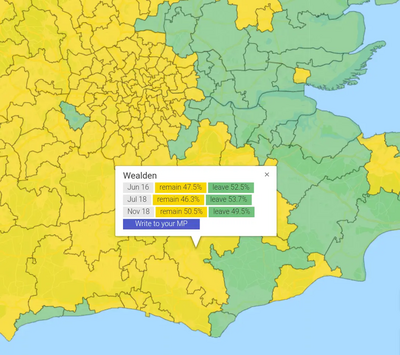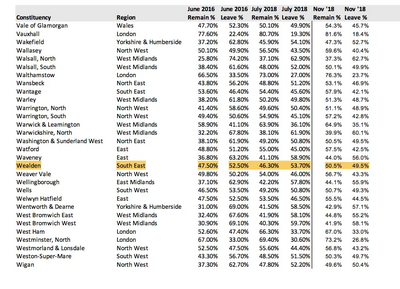May's Bad Brexit Deal Defeated - Long Live Democracy
So after two-and-a-half years of incompetence, indecision and ineptitude, Theresa May's Brexit deal has been resoundingly rejected by the House of Commons. Despite postponing her "meaningful vote" by over a month in order to rally support for her bad deal, it was voted down last night by an historic parliamentary majority of 230, the biggest government defeat ever.
As the "what happens next" debate swirls in the media, the LibDems position was made clear by MP and (Anti-)Brexit Spokesperson Tom Brake, who immediately pointed out that while the party must clearly vote to say we have no confidence in May or her government, holding another General Election would solve nothing because: "Whether Brexit is delivered by Theresa May or Jeremy Corbyn, the result is the same: Brexit is a disaster for Britain."
Despite Brexiteers' attempts to hold up the 2016 Referendum result as being the current "Will of the People", recent polls show there's been a big shift in national public opinion. Last month, after their biggest poll yet, Best for Britain, Avaaz and Hope Not Hate produced a new map of British attitudes towards Brexit and it is clear that the tide has turned, with at least 422 out of 632 constituencies in Great Britain no longer backing Brexit. They discovered that 193 constituencies that voted to leave in 2016 have changed their minds and now want to stay. One of those consituencies is Wealden, as shown in these infographics:


Chris Bowers, Wealden LibDem's Parliamentary Spokesperson, has released the following statement offering a fresh perspective on why it's now imperative that the government holds a People's Vote on the only real options that are truly available:
"The complete mess the government has made of the Brexit process looks like leading to what should always have happened anyway - the chance for the people to approve or reject Theresa May's deal. If you put in an offer on a house and your surveyor or solicitor then discovers something sinister, you can pull out; if a trade union negotiates a deal with management, it puts that deal to its members before it's accepted; if a company bids to take over another company, the shareholders get to vote on whether they're happy with that takeover bid. In so many walks of life, those affected by a significant change get to vote on that change, yet there has been this curious reluctance to put the Brexit deal to the people. By a chaotic and damaging route, it now looks more likely that UK voters will, after all, get the chance to say either 'This Deal will have to do' or 'If this is the Deal, we'd prefer to stay in the EU.'"